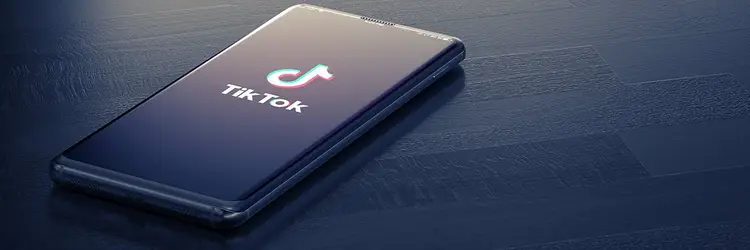US TikTok ban imminent after appeal fails

TikTok's Appeal Against U.S. Ban Gets Denied
Released on December 6, 2024, at 7:38 PM.
A U.S. appeals court has confirmed the legality of a law enacted by Congress in early 2024 that prohibits the Chinese-owned video-sharing app TikTok in the United States, citing concerns related to national security and data privacy.
In April, the law easily passed through the US Congress as part of a larger aid package for Israel, Taiwan, and Ukraine. It requires TikTok's parent company, ByteDance, to either sell TikTok to an American company or face permanent removal from app stores. If they fail to comply, both Apple and Google could face financial penalties.
The law was enacted during a period of increasing tensions between the US and China, along with numerous allegations from Western cybersecurity organizations pointing to extensive Chinese cyber espionage activities.
TikTok challenged this decision, but today, December 6, the US Court of Appeals for the District of Columbia Circuit unanimously rejected the appeal.
In the court's ruling regarding TikTok and ByteDance Ltd against Merrick Garland, the US attorney general, Judge Douglas Ginsburg stated that the outcome will greatly affect TikTok and its users. He noted that if ByteDance does not sell its business by January 19, 2025, or if the president does not approve a 90-day extension, TikTok will essentially be inaccessible in the US. As a result, the millions of users on TikTok will have to seek other ways to communicate.
Ginsberg stated that this issue was due to China's mixed-type commercial danger to American security, rather than the actions of the US government. He mentioned that the US has been working with TikTok for a while to explore different options.
Ginsberg also rejected TikTok's claims that a ban would violate its First Amendment rights. The First Amendment, which has been in effect since December 1791, protects freedoms related to speech and the press in the United States.
"The First Amendment is in place to safeguard free speech in the United States. In this case, the government took action specifically to defend that freedom from a foreign enemy and to restrict that enemy's capacity to collect information about individuals in the U.S.," he stated.
A representative from TikTok expressed on the social media platform X, "The Supreme Court has a long history of safeguarding the right to free speech for Americans, and we believe they will uphold that right in this crucial constitutional matter."
“Regrettably, the decision to ban TikTok was made based on misleading, incorrect, and speculative information, leading to the outright suppression of American citizens' voices. If the ban isn't halted, it will silence more than 170 million people in the United States and globally starting on January 19, 2025.”
As reported by CNBC, TikTok intends to pursue a legal order to bring the case before the US Supreme Court located in Washington DC.
Trump's Surprising Change Of Heart?
A potential silver lining for TikTok could be the upcoming Republican administration under President-elect Donald Trump, who is set to make a historic return to the White House in January for his second term.
Before the 2020 election, Trump was vocal about wanting to prohibit TikTok and nearly succeeded in doing so. Yet, following legal actions by the Biden administration, his stance seems to have shifted. In September, he briefly highlighted the issue as part of his campaign, urging TikTok users to support him at the polls. As of now, though, Trump hasn't clarified if he will pursue a ban.
Craig Singleton, a senior fellow and director of the China program at the Foundation for Defense of Democracies, played a significant role in creating an amicus brief that was heavily referenced by the court. He remarked that the decision highlighted an increasing agreement that TikTok’s time is running out, at least in its existing format.
Singleton stated, "This unanimous ruling serves as a strong message to international businesses working in critical industries – they need to follow the regulations or deal with the repercussions."
"Anticipate that TikTok will utilize all possible strategies – including lobbying, legal battles, and influencing public opinion – to delay the sale of its assets. However, the growing bipartisan desire for action indicates that the company's time is quickly running out."
This decision also acts as a key indicator of how the United States, along with its main allies like the UK, addresses technological challenges posed by authoritarian governments. For lawmakers, the events that have unfolded so far are a trial to see if current laws can adapt to new and emerging dangers, he noted.
“According to Singleton, this situation goes beyond just TikTok for Beijing – it represents a meaningful and tactical defeat in the larger battle with Washington over technology. It’s clear that this decision weakens Beijing’s capacity to leverage TikTok as a significant means of influencing, gathering data, and controlling narratives in the US, signifying a major strategic setback.”
Singleton shared with Computer Weekly through email that China has limited choices, aside from responding with strong words or implementing reciprocal actions against U.S. businesses that are active in China.
"Although Beijing is expected to voice strong objections, we shouldn't anticipate any significant actions. China may express its dissatisfaction vocally, but given the current pressure on its economy, this situation poses more of a diplomatic challenge rather than an urgent crisis."











































